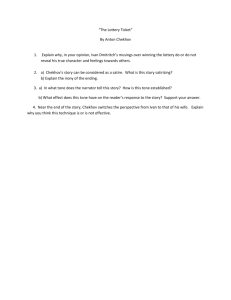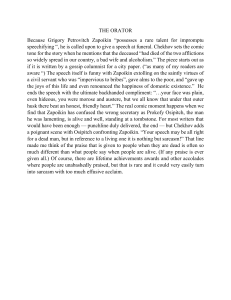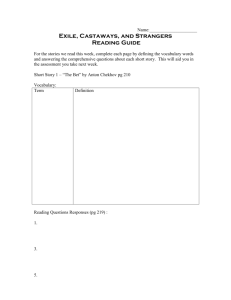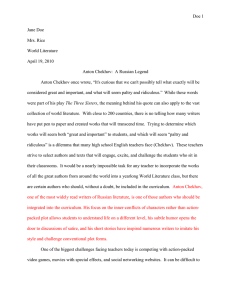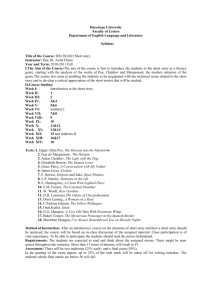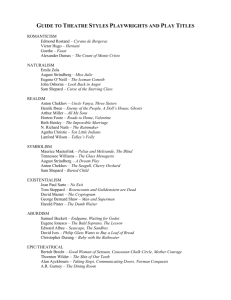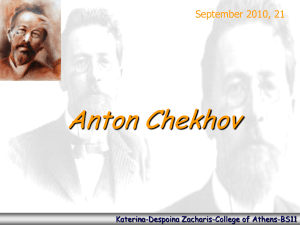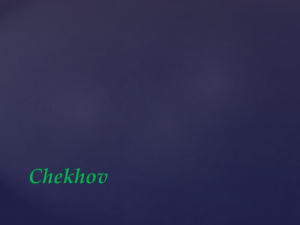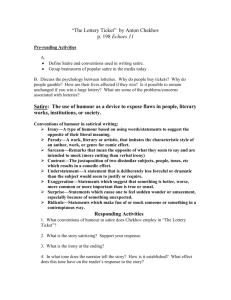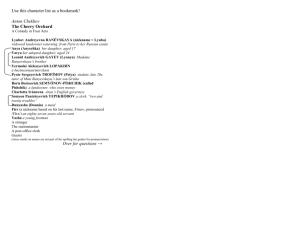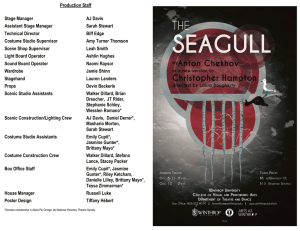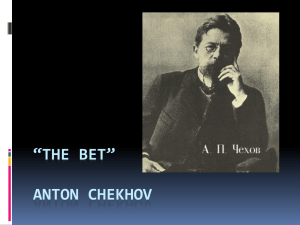The Lottery Ticket Questions
advertisement
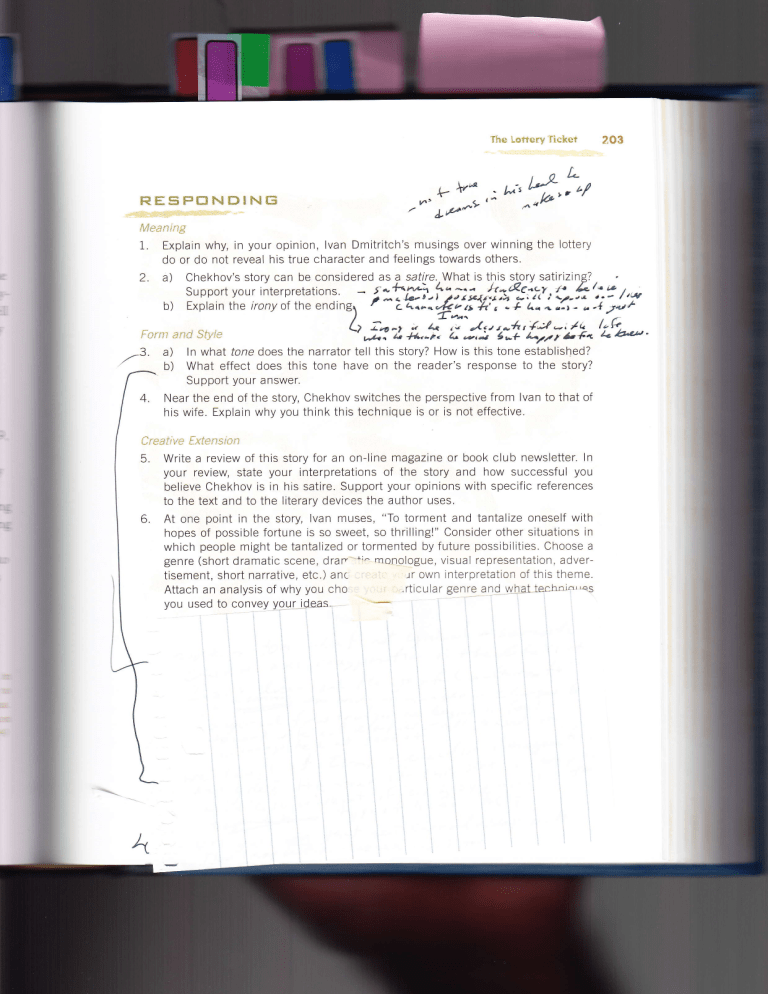
'fhar
\r* ,: k'r 4,!r,
.v
..''
ffiffiffis*ffihdffigruffi
sr.r*t'^
,^
iii,iii.,:
ui,'t#
1.
Explain why, in your opinion, lvan Dmitritch's musings over winning the lottery
do or do not reveal his true character and feelings towards others.
2. a)
b)
Chekhov's story can be considered as a satire. What is thrs st_ory satirrzing? .
Support vour interpretarions
Explain the irony of the ending\
L-n"'-r- .-1
- t'--L-l...firih',
/,n
t:lfii.f1;;;-,1:{::nr,,-',-*':.:
:t
;,i
*
}"it ;3' 4,; / ?.
^*
a) ln what fone does the narrator tell ihis story? How is this tone established?
4
/t
t*tter-y iiek*e
r^^^ rLi^ +^^^ h^.,^ ^^ +L^
-3. L\b) \l/L^+
^rr^^+ does
^+^..,,
reader's response +^
to +h^
the story?
What effect
this tone have on the .^^A^.,^
Support your answer.
4.
Near the end of the story, Chekhov switches the perspective from lvan to that of
his wife. Explain why you think this technique is or is not effective.
i. ;'i:;:
5.
6.
i
i'*',i..1 ii:i;l;lat,1
Write a review of this story for an on-line magazine or book club newsletter. ln
your review, state your interpretations of the story and how successful you
believe Chekhov is in his satire. Support your opinions with spectfic references
to the text and to the literary devices the author uses.
At one point in the story, lvan muses, "To torment and tantalize oneself with
hopes of possible fortune is so sweet, so thrilling!" Consider other situations in
which people might be tantalized or iormented by future possibilities. Choose a
genre (short dramatic scene, drar'- ''^ monologue, visual representation, adverrr own interpretation of this theme.
tisement, short narrative, etc.) anc
cho
Attach an analysis of why you
you used to convey yo!.rr-i!eas-
,rticular genre and W]lallechn o'"q5
2<t/
/Lfru.,,
-
